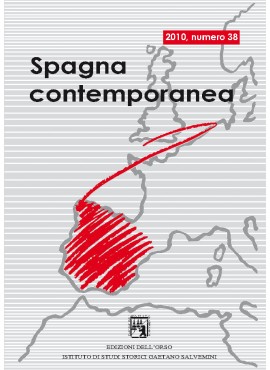Il nazionalismo basco nella riflessione storiografica: interpretazioni e costruzioni dell’immaginario identitario
Keywords:
Basque nationalism, history of the Basque Country, historiographic trends, political religionsAbstract
The basque nationalism: historiographic interpretations and constructions of identity
Since the seventies, post-Francoist historians proposed a “functional” interpretation of the Basque national issue, mainly as a reaction to the late-XIX century Biscayan industrial revolution. The reading of peripheral nationalism as something “imagined” and “invented” summed up to the later anthropological and cultural analysis of original euskaldun myths, which regarded as irrational modernity based on ethnical and exclusive assumptions. Thus the Basque difference, intended as a variant of the “Spanish labyrinth”, hardly allowed for national or international comparisons and occasionally led to the ideological rejection of autonomist discourse. On the basis of these assumptions, Basque nationalism is seen as an example of sacralization of politics, capable of supporting Euskadi’s assumed historical peculiarity. More recently, Coro Rubio Pobes’ research focuses on the dual (and integrated) Spanish and Basque identity construction, as imagined on a literary and political plan throughout the XIX century. While Sabino Arana’s thinking contains local elements (associated to foral traditionalism), his “originality” does not justify the existence of a political religion or an essentialism lying outside the ethno-religious culture of Spanish national-Catholicism.
Downloads
Published
Issue
Section
License
Copyright (c) 2010 Istituto di studi storici Gaetano Salvemini, Torino

This work is licensed under a Creative Commons Attribution-NonCommercial-NoDerivatives 4.0 International License.



